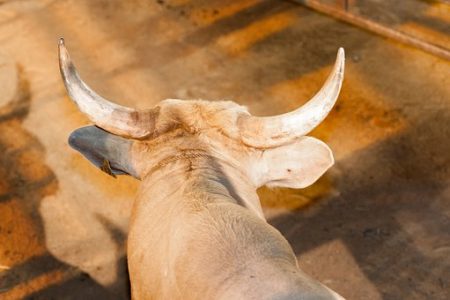- A brief overview of bull-runs in Spain…
Spain is home to many odd and unique sporting events, with the running of the bulls being among the most extraordinary. This event is considered one of the oddest and most controversial traditions in the world, taking place in Pamplona, Spain, where participants run in front of bulls that are released into the streets. Despite the evident risks involved, this practice has been ongoing for centuries, captivating audiences worldwide who visit to observe and take part in the exhilarating spectacle.
Whether you’re planning a journey to Spain to see this unusual celebration or simply want to learn more about its beginnings, this article will provide all the information you need.
Pamplona Bull Run Origins
According to tradition, the practice of bull-running originated in the northeastern region of Spain during the early 14th century. Back then, cattle herders who needed to transport their valuable animals from barges or rural areas to city centers for sale or bullfights faced the challenge of finding an efficient way to do so. To speed up the process, these men resorted to using fear and excitement as tactics to urge their cattle forward.
The men who tended the bulls would often run in front of them to keep them moving in the right direction. Over time, this practice evolved into a tradition, and the running of the bulls was born. Nowadays, it’s an event that draws millions of tourists
When Does it Take Place?
The event is not a stand-alone occasion, but rather a component of the wider San Fermin celebration, which runs from July 6th to July 14th each year. The festival honors San Fermin, the patron saint of Pamplona, and includes a variety of cultural activities such as concerts, fireworks, and parades. Notwithstanding these festivities, the running of the bulls is the event that draws the greatest attention and controversy.
How come it’s so Popular if It’s Dangerous?
The running of the bulls is a dangerous event, and every year, there are injuries and fatalities. In fact, since records began in 1924, 15 people have been killed during the event. Even so, the high-stakes festival in Pamplona remains hugely popular, with thousands of people traveling to the city yearly to watch or participate in the run.
Part of the allure of the running of the bulls is undoubtedly the danger and excitement of the event. Running in front of a group of angry bulls is not for the faint-hearted, and the adrenaline rush that comes with it is a big draw for many participants. For others, the event is more about tradition and cultural significance.
Impact On Tourism
From a tourist perspective, the running of the bulls is a major draw for the city of Pamplona. Year after year, thousands of people travel from all over the world to experience the festival and witness the spectacle offered by this unique event. Needless to say that the influx of tourists is a huge breath of fresh air for the local economy. Hotels, restaurants, and gift shops all benefit from the increased business and tourists.
However, the running of the bulls is not without controversy. Activists for animal rights have a harsh stance towards the event, arguing that it is cruel and inhumane. They claim that the bulls are subjected to a great deal of stress and fear during the run. And as things were not bad enough, many were injured or killed in the process or in the arena at the end. Recently, the growing opposition towards the event and numerous calls for it to be banned, lead to some changes from the organizers. So, if you’re after an exciting time but without the risks that come with running from the bulls, you can always turn to the thrilling Spanish online casinos for a safe adrenaline rush.
How about the Future?
Despite these concerns, the running of the bulls remains a hugely popular and deeply ingrained tradition in Pamplona. It represents a once-in-a-lifetime experience, and a unique opportunity to test their bravery and participate in a long-lasting festival. Whether you see it as a cultural treasure or a dangerous spectacle, there is no denying the impact that the running of the bulls has had on the world of tourism and popular culture.
So, it’s safe to assume that the event will continue in future years as well. Actually, in the 30 years since it was broadcasted live by RTVE, the event was canceled only two times. 2020 and 2021 were the years when the famous bull run did not happen due to the COVID-19 pandemic.
Final Thoughts
From its humble origins as a way of moving livestock to its current status as a major tourist attraction, the event has evolved and adapted to changing times and attitudes. While there are valid concerns about the safety and welfare of both humans and animals involved in the event, there is no denying that the running of the bulls is an iconic and enduring aspect of Spanish culture and heritage. The event also falls into the category of Spain’s odd and unique sporting events, of which there are many. These events highlight the diversity and richness of Spanish culture and traditions.
Hits: 0














